
-
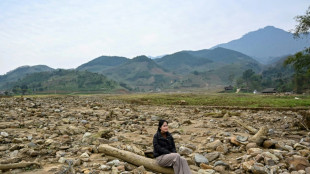 Vietnam village starts over with climate defences after landslide
Vietnam village starts over with climate defences after landslide
-
'Happiness, love' at Moonie mass wedding after Japanese court blow
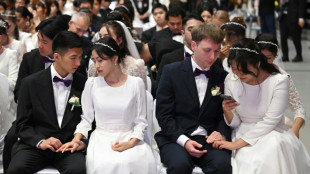
-
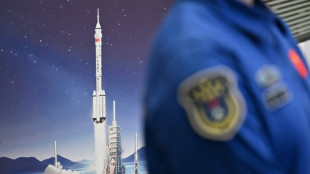 Veteran Chinese astronaut to lead fresh crew to space station
Veteran Chinese astronaut to lead fresh crew to space station
-
Pilgrims gather as Pope Francis begins lying in state
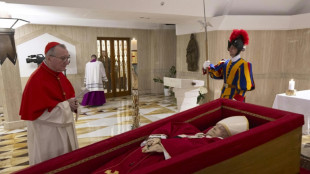
-
 Asian markets rally as Trump comments ease Fed, China trade fears
Asian markets rally as Trump comments ease Fed, China trade fears
-
Saudi 'city of roses' offers fragrant reminder of desert's beauty
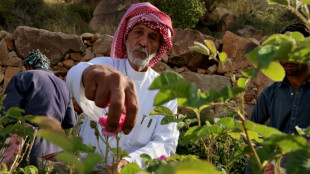
-
 Trump says won't fire Fed chief, signals China tariffs will come down
Trump says won't fire Fed chief, signals China tariffs will come down
-
India hunts gunmen who massacred 26 in Kashmir tourist hotspot
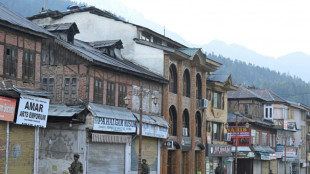
-
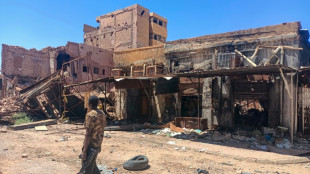 'No one else will': Sudan's journalists risk all to report the war
'No one else will': Sudan's journalists risk all to report the war
-
UK hosts new round of Ukraine talks
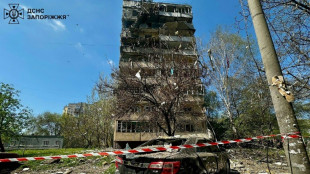
-
 Trial testimony reveals OpenAI interest in Chrome: reports
Trial testimony reveals OpenAI interest in Chrome: reports
-
Tokyo's newest art star: one-year-old Thumbelina
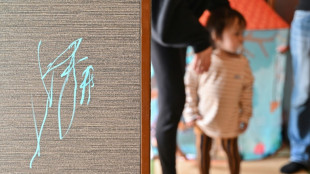
-
 Ronaldo hunts Asian Champions League glory in Saudi-hosted finals
Ronaldo hunts Asian Champions League glory in Saudi-hosted finals
-
Scientists sound alarm as Trump reshapes US research landscape
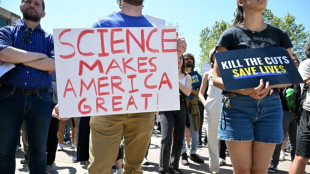
-
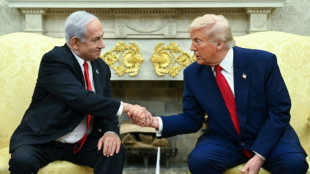 Trump's return boosts Israel's pro-settlement right: experts
Trump's return boosts Israel's pro-settlement right: experts
-
Trump solo: first lady, children out of frame in new term
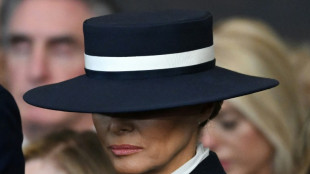
-
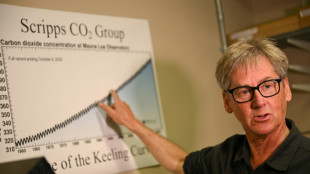 Climate watchers fret over Trump's cut to sciences
Climate watchers fret over Trump's cut to sciences
-
Moving fast and breaking everything: Musk's rampage through US govt
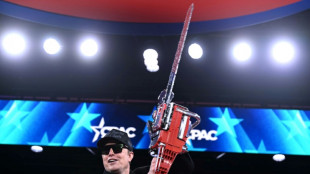
-
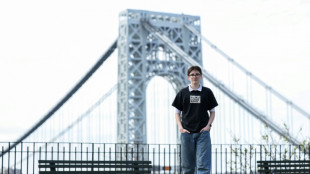 'Everyday attack' - Trans youth coming of age in Trump's America
'Everyday attack' - Trans youth coming of age in Trump's America
-
A stadium and a jersey for Argentina's 'Captain' Francis

-
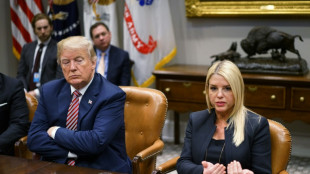 New Trump task force vows to root out 'anti-Christian bias'
New Trump task force vows to root out 'anti-Christian bias'
-
Auto Shanghai showcases new EV era despite tariff speedbumps
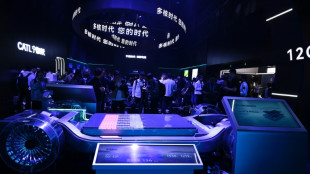
-
 Trump's administration moves to scrap artificial food dyes
Trump's administration moves to scrap artificial food dyes
-
Musk to reduce White House role as Tesla profits plunge
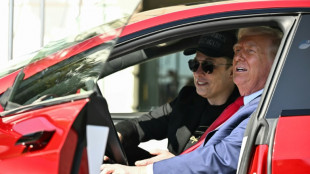
-
 US official backs off promise to solve cause of autism by September
US official backs off promise to solve cause of autism by September
-
Guardiola joy as Man City go third after dramatic win over Villa

-
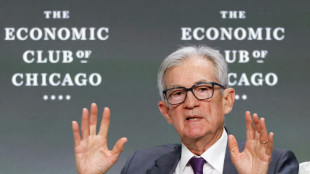 Trump says has 'no intention' of firing Fed chief
Trump says has 'no intention' of firing Fed chief
-
Jury finds New York Times did not libel Sarah Palin

-
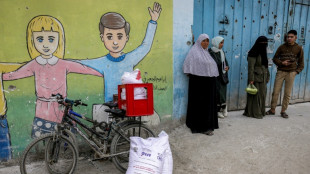 UN appoints envoy to assess aid for Palestinians
UN appoints envoy to assess aid for Palestinians
-
Celtics star Tatum 'doubtful' for game two against Magic

-
 Former England star Flintoff reveals mental battle after car crash
Former England star Flintoff reveals mental battle after car crash
-
Defending champion Korda chases first win of season at Chevron Championship

-
 Olmo fires Liga leaders Barca past Mallorca
Olmo fires Liga leaders Barca past Mallorca
-
Nunes strikes at the death as Man City sink Villa to boost top-five bid

-
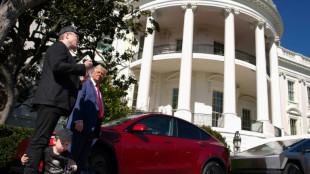 Tesla says profits plunge 71%, warns of 'changing political sentiment'
Tesla says profits plunge 71%, warns of 'changing political sentiment'
-
WHO announces 'significant' layoffs amid US funding cuts

-
 PSG draw with Nantes to stay unbeaten in Ligue 1
PSG draw with Nantes to stay unbeaten in Ligue 1
-
Trump's administration moves to ban artificial food dyes

-
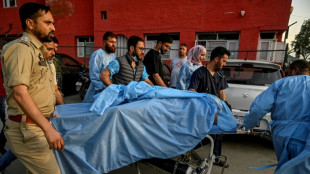 Gunmen kill dozens of civilians in Kashmir tourist hotspot
Gunmen kill dozens of civilians in Kashmir tourist hotspot
-
US Treasury chief expects China tariff impasse to de-escalate
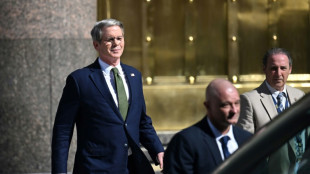
-
 I.Coast opposition leader Thiam barred from presidential election
I.Coast opposition leader Thiam barred from presidential election
-
Top US court leans toward parents in case on LGBTQ books in schools
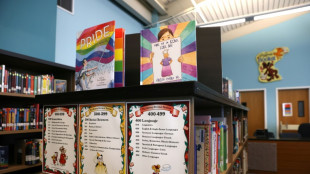
-
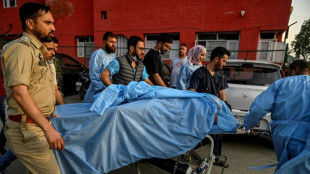 At least 24 killed in Kashmir attack on tourists
At least 24 killed in Kashmir attack on tourists
-
Rahul powers Delhi to big win over Lucknow in IPL

-
 Colombian cycling star 'Lucho' Herrera denies murder conspiracy
Colombian cycling star 'Lucho' Herrera denies murder conspiracy
-
Trump, Zelensky to attend Pope Francis's funeral Saturday
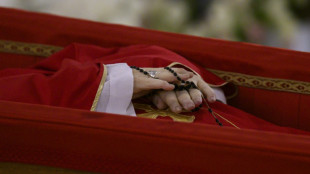
-
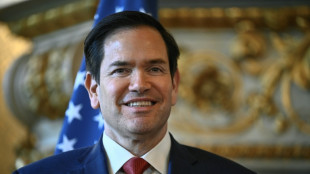 US State Department to cut positions, rights offices
US State Department to cut positions, rights offices
-
Ukraine ready for direct talks with Russia only after ceasefire: Zelensky
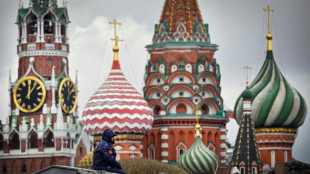
-
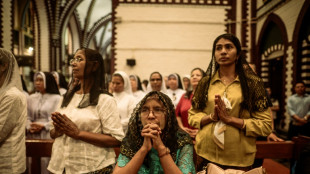 Myanmar Catholics mourn pope who remembered their plight
Myanmar Catholics mourn pope who remembered their plight
-
Pope's Vatican 'family' pay tearful respects
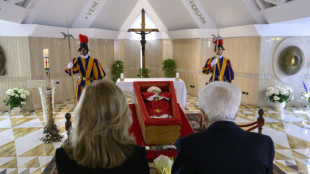

How three dust specks reveal an asteroid's secrets
The specks are tiny. No, really tiny. Smaller than the diameter of a hair. But they hold billions of years of history that reveal some of the secrets of asteroids.
The three minute particles from an asteroid called Itokawa show some of these space rocks are vastly older than was thought, and are much tougher.
And that could mean we need bolder ways to prevent catastrophic collisions with Earth, according to research published Tuesday.
The three samples were collected in 2005 from the peanut-shaped Itokawa, some 300 million kilometres (186 million miles) from Earth.
It took the Japanese spacecraft Hayabusa five years to return them to Earth, along with hundreds of other particles from Itokawa, and scientists have been analysing them for clues ever since.
Fred Jourdan, professor at Curtin University's School of Earth and Planetary Sciences, wanted to see what the specks could reveal about the age of rubble-pile asteroids like Itokawa.
These form when solid asteroids collide and the resulting fragments assemble into new structures.
Solid asteroids are thought to have a lifespan of several hundred million years, and are gradually ground down by constant collisions.
But rubble-pile asteroids have a very different structure, composed of rocks, dust, pebbles and a void, and held together by the gravitational pull of their various components.
"It's like a giant space cushion, and cushions are good at absorbing shock," Jourdan said.
To find out just how good, the team analysed crystal structures in the samples, looking for deformations caused by the impact that created Itokawa.
And they dated the samples by measuring the decay of potassium into argon.
The methods suggest Itokawa was formed by an asteroid collision at least 4.2 billion years ago, ten times older than solid asteroids of similar size are predicted to be.
"We were really surprised," said Jourdan.
"I mean that's really, really old, and I'm sure some of my colleagues are not even going to believe it."
Rubble-pile asteroids are so resilient to the constant battering they face that they are likely to be much more abundant than previously assumed, the research published in the journal Proceedings of the National Academy of Sciences concludes.
That might mean we need new ways to tackle such asteroids on a collision course with Earth, Jourdan said.
NASA's recent DART test showed asteroids like Itokawa can be nudged off course, but that would likely require a lead time of several years.
An asteroid just weeks from colliding with Earth would require a different approach, and Jourdan argues a nuclear blast might be needed.
"It's not 'Armageddon'-style," blowing it up, he hastens to add, referring to the 1998 sci-fi movie.
"The shockwave should push the asteroid out of the way."
It is a far-reaching conclusion to draw from such tiny specks of dust, but each particle is analysed at the atomic level.
"We can get big stories like that out of (something) very, very small, because those machines, what they're doing, is the measuring and counting of atoms," Jourdan said.
"Every grain has its own story to tell."
J.Fankhauser--BTB


